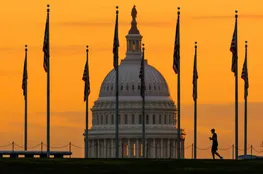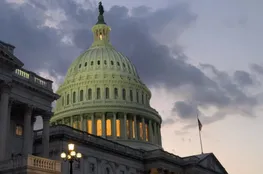Amid the political landscape of the United States, the possibility of a Donald Trump victory in the next presidential election raises numerous questions. Trump currently appears to be gaining momentum. Recent national polls indicate a slight lead for him, and even outlets traditionally sympathetic to Democrats show a highly competitive race. While previous elections discussed strong polling leads for Democratic candidates like Hillary Clinton and Joe Biden, the outcomes were notably close. Thus, contemplating Trump's victory in both the electoral college and popular vote is crucial. Such an outcome could significantly influence the trajectory of the Republicans, potentially elevating figures like JD Vance. Trump might seek to influence the Federal Reserve's policies, perhaps replacing Chairman Jay Powell or advocating policy changes.
Kevin Warsh, a former Fed governor, cautions about the potential impact of the Fed's actions on the stock market and inflation. Nevertheless, Trump's economic agenda, coupled with reduced fiscal excessiveness, may allow for a normalization of monetary policy without triggering an economic downturn. The imposition of tariffs could be another area of focus for Trump. He might deploy them as a negotiation strategy with China, referencing radical tax reform ideas such as substituting income taxes with tariffs. Additionally, managing immigration policies presents challenges. A structured approach, like a "reverse amnesty," could incentivize voluntary departures of undocumented migrants. Despite concerns about potential economic impacts, substantial portions of the native populace remain underemployed.
A Trump administration could also aim for substantial regulatory deregulatory measures across sectors like energy and cryptocurrency, influenced by recent Supreme Court decisions. Furthermore, an extension of the 2017 tax cuts might be pursued. Government spending reforms may form part of the agenda, potentially led by figures like Elon Musk, who has been tapped for enhancing government efficiency. Together, Trump and Musk might strive to return spending levels to pre-COVID paths. Nevertheless, an economic downturn poses threats, with risks associated with unrealized bond losses and commercial real estate. Despite these concerns, Trump's focus on the economy and addressing inflation might maintain his electoral appeal.
On the foreign front, changes in NATO dynamics and reactions from neoconservatives and neoliberal hawks could unfold. Trump's foreign policy approach will likely seek strategic realignments, potentially impacting transatlantic relations. Domestically, a Trump victory might demand significant recruitment and organizational efforts within governmental agencies. Managing political unrest and perceptions of authoritarianism could challenge his administration. Within the Democratic Party, reactions to a Trump victory might lead to strategic recalibrations, balancing radical elements and centralist strategies. As industries evolve, winners could emerge in sectors like traditional and nuclear energy, while others may face challenges.
Big Tech, Big Pharma, and sectors linked to green energy may see shifts in influence. Additionally, the so-called "Censorship Industrial Complex" could face a strategic reassessment amid a changing political environment. Finally, the landscape of U.S.-Russia-Ukraine relations might shift under a Trump presidency. Achieving peace in the ongoing conflict could be complex, yet meaningful agreements could be attainable. The potential for a new economic boom, fueled by policies promoting energy abundance, might further reshape political dynamics. As Trump potentially consolidates his influence, reaching out to unify diverse segments of the population could prove pivotal.
























